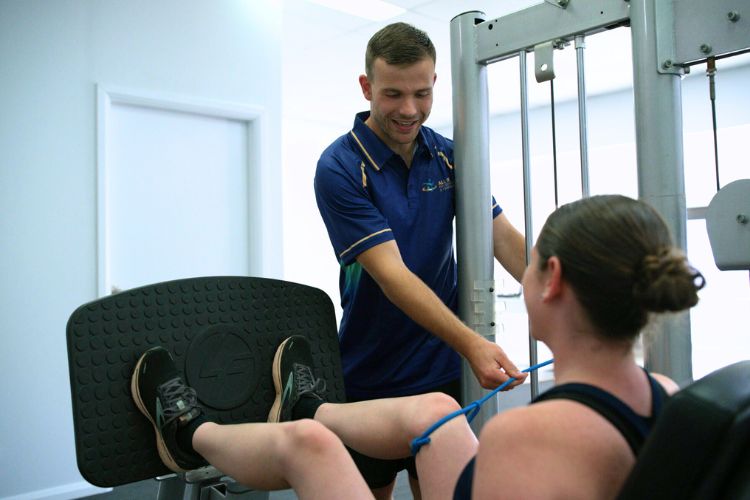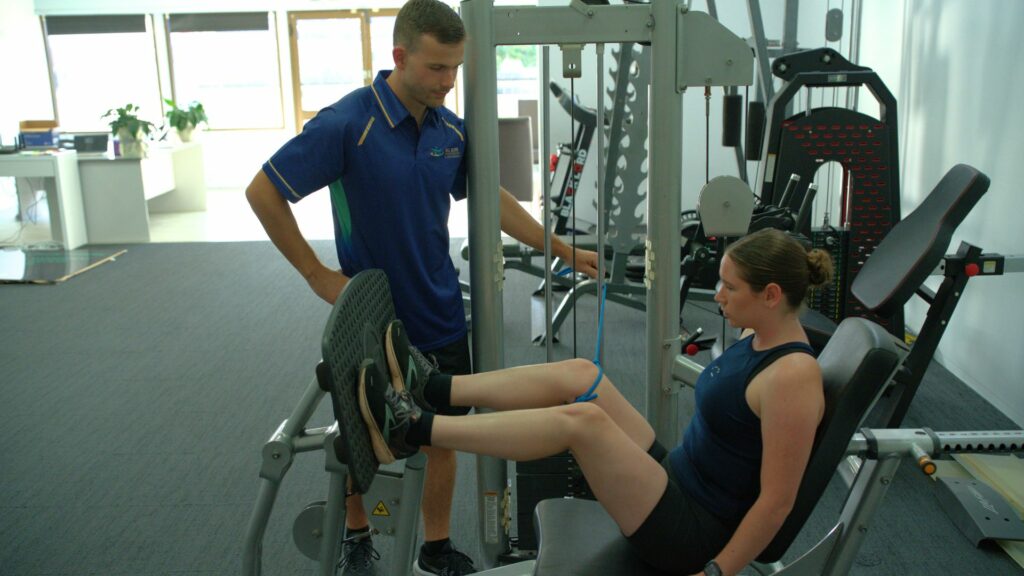What to Expect in Your First 6 Weeks of Post-Surgery Physio Treatment
Key Takeaways
- The first six weeks after surgery are critical for recovery, and guided physiotherapy helps manage pain, restore movement, and rebuild strength safely.
- Early sessions focus on swelling control and gentle mobility, progressing toward strength and functional movement by week six.
- Consistency in attending physio sessions and completing prescribed exercises at home leads to faster and more effective healing.
- Working closely with your physiotherapist ensures proper technique, gradual progress, and long-term confidence in your recovery.
Recovering from surgery takes time, care, and the right guidance. The real progress begins when you start physiotherapy, which helps you regain movement, rebuild strength, and restore confidence in your body. Whether you’ve undergone knee reconstruction, shoulder repair, or another procedure, the first six weeks after surgery play a crucial role in how well and how quickly you recover.
At All Elite Physiotherapy & Performance, we tailor post-surgery programs to help you move safely and rebuild strength step by step. Here’s what you can expect during your first six weeks of rehabilitation.
The Importance of Post-Surgery Physiotherapy
After surgery, your body focuses on healing tissues, reducing inflammation, and regaining normal function. However, rest alone can lead to stiffness and muscle weakness. Post-surgery physiotherapy provides the structure and expertise you need to heal correctly.
Physiotherapy helps to:
- Control pain and swelling for comfort and better mobility.
- Improve flexibility and joint movement.
- Strengthen weakened muscles safely and effectively.
- Prevent scar tissue and stiffness from limiting your recovery.
- Build confidence to return to sport, work, and daily activities.

Starting physiotherapy early with professional guidance ensures a smoother and faster recovery journey.
Week 1: The Foundation Phase
The first week focuses on protection and controlled movement. Your physiotherapist will guide you through the essentials to reduce pain and support healing without overloading the surgical site.
You can expect:
- Swelling management using ice, compression, and elevation.
- Pain control through gentle exercises and manual techniques.
- Mobility education to help you sit, stand, and walk safely.
- Early activation of surrounding muscles to maintain strength.
During this time, you’ll also learn what to expect in your upcoming sessions and how to avoid common mistakes like overexertion or poor posture.
Weeks 2–3: Regaining Movement and Control
As swelling decreases, your focus shifts to restoring movement and beginning light activation exercises. Controlled mobility is essential to prevent stiffness and promote circulation around the surgical area.
Your physiotherapist may introduce:
- Assisted stretching to restore range of motion.
- Gentle strengthening for supporting muscles.
- Posture and alignment work to improve movement quality.
Consistency is key during this stage. Doing your prescribed rehabilitation exercises at home complements your in-clinic sessions and speeds up progress.
Weeks 4–6: Building Strength and Confidence
Around the fourth week, most patients are ready to move into progressive strength and stability training. The focus now is on rebuilding functional movement and balance so you can return to daily activities safely.
You may begin using resistance bands, weights, or stability tools to strengthen your joints and muscles. These sessions are designed to gradually restore endurance and confidence in your movement.
For athletes or active individuals, your physiotherapist may integrate sport-specific drills similar to those used in sporting injury management, preparing your body for more advanced performance goals.
What Happens in Your Physio Sessions
Each session is structured around your stage of recovery. Your physiotherapist will:
- Assess your movement, strength, and flexibility.
- Use hands-on therapy or massage to reduce tightness.
- Guide you through corrective exercises and mobility work.
- Review your home program to make sure it aligns with your progress.
Regular feedback ensures your recovery stays on track, and adjustments are made when needed to match your healing rate.

Managing Pain, Swelling, and Expectations
Pain and swelling are normal after surgery, but they should gradually improve. Your physiotherapist will help you identify which sensations are part of healing and which need attention. Cold therapy, gentle stretching, and controlled movement are often recommended to manage discomfort.
If your surgery was work-related or covered by insurance, our workcover physiotherapy service supports safe recovery and helps you return to work comfortably. The key is to stay patient, consistent, and open with your physiotherapist about how you’re feeling.
Common Mistakes to Avoid in Early Recovery
Avoiding setbacks is just as important as completing your exercises. Some common mistakes include:
- Skipping physiotherapy appointments.
- Doing too much activity too soon.
- Ignoring pain or swelling.
- Failing to follow prescribed home exercises.
Recovery is a balance between movement and rest. Following your physiotherapist’s advice ensures progress without complications.
Your Physiotherapist’s Role in Long-Term Recovery
Physiotherapy is not only about the early weeks. Your physio will guide you through every stage of recovery, ensuring you regain full mobility and strength. They will also educate you on injury prevention techniques, helping you stay active and reduce the risk of future issues.
By the end of six weeks, most patients begin transitioning to advanced exercises or sport-specific conditioning. The goal is not just healing, but improved movement, function, and long-term confidence.
When to Seek Reassessment
If you notice increased swelling, persistent pain, or limited movement despite following your program, contact your physiotherapist. Early reassessment can identify minor setbacks before they become bigger problems.
At All Elite Physiotherapy & Performance, we closely monitor your progress and adjust your plan whenever necessary to keep your recovery safe and effective.
Start Your Recovery Journey Today
Your first six weeks after surgery lay the foundation for a lifetime of movement and strength. With guided care, consistent effort, and a tailored plan, you can recover faster and return to the activities you love.
At All Elite Physiotherapy & Performance, our team provides evidence-based care that’s specific to your body, surgery, and goals. Whether you’re recovering from a sports injury, workplace injury, or orthopaedic procedure, we’re here to help you rebuild stronger than before.
Book your post-surgery physiotherapy appointment today and take the first step toward confident recovery.
